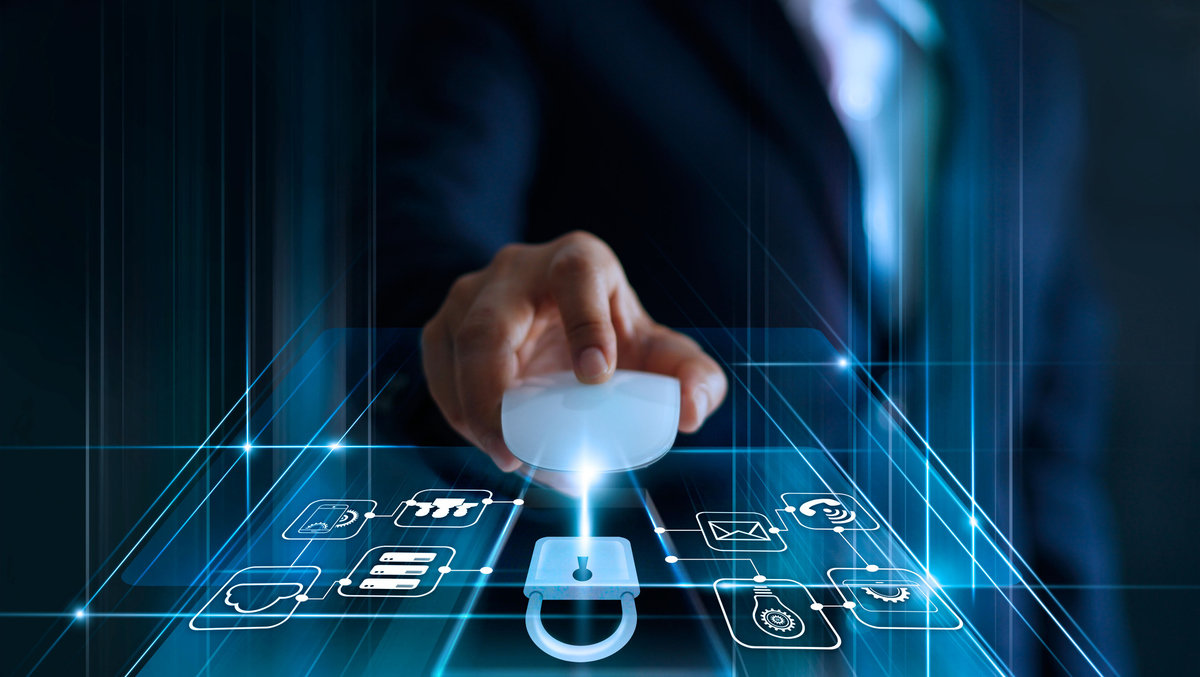Boost Your Digital Immune System: How to Stay Protected in a Rapidly Evolving Tech Landscape

Definition of Digital Immune System
First, let's define what we mean by a digital immune system. Just as your body's immune system helps protect you from illnesses and infections, your digital immune system is your defense mechanism against cyber threats. It includes the tools and strategies you use to keep your devices, data, and online accounts safe and secure.
Your digital immune system can be compromised by various types of cyber threats, including viruses, phishing scams, identity theft, and data breaches. These threats can have serious consequences, like financial loss, compromised personal information, and even reputational damage.
Threats to Digital Immune System
The threats to your digital immune system are widespread and constantly evolving. Some of the most common types of cyber threats include:
Malware
Malware is any software that is designed to harm your computer, steal your data, or disrupt your system. Examples of malware include viruses, trojan horses, and ransomware. Malware can be spread through infected email attachments, downloads from malicious websites, or even through social media.
Phishing
Phishing is a type of scam where cybercriminals try to trick you into revealing sensitive information, such as your login credentials, credit card numbers, or social security number. Phishing scams can take many forms, including emails, text messages, or fake websites that look like legitimate ones.
Identity Theft
Identity theft is the unauthorized use of your personal information to commit fraud or other crimes. Cybercriminals can steal your identity by hacking into your email or social media accounts, or by using fake job postings or other scams to trick you into giving up your personal information.
Data Breaches
Data breaches occur when cybercriminals gain access to sensitive information, such as credit card numbers or social security numbers, from a company or organization. These breaches can lead to financial loss, compromised personal information, and even reputational damage for the company and the individuals affected.
Tips to Boost Your Digital Immune System
Fortunately, there are many steps you can take to strengthen your digital immune system and protect yourself from these threats. Here are some tips and tricks to help you stay safe and secure online:
Use Strong Passwords
One of the most important things you can do to protect your digital immune system is to use strong passwords. A strong password is one that is difficult for others to guess and includes a mix of letters, numbers, and symbols. You should also avoid using the same password for multiple accounts.
Enable Two-Factor Authentication
Two-factor authentication (2FA) adds an extra layer of security to your online accounts by requiring you to enter a code in addition to your password. This code is typically sent to your phone or email, making it much more difficult for cybercriminals to access your accounts without your permission.
Keep Your Software Up-to-Date
Keeping your software up-to-date is essential for maintaining a strong digital immune system. Software updates often include security patches that address vulnerabilities in the system. By keeping your software up-to-date, you can ensure that your devices are protected against the latest threats.
Be Cautious of Suspicious Emails and Links
Phishing scams often rely on emails or links that appear legitimate but are designed to steal your personal information. Be cautious when clicking on links or opening attachments from unknown senders. If you're unsure whether an email or link is legitimate, it's best to err on the side of caution and avoid clicking on it.
Use Antivirus Software
Antivirus software can help protect your computer from malware and other cyber threats. Be sure to keep your antivirus software up-to-date and run regular scans to detect and remove any potential threats.
Be Wary of Public Wi-Fi
Public Wi-Fi networks are often unsecured, making them vulnerable to cyber-attacks. If you must use a public Wi-Fi network, avoid logging into sensitive accounts or sharing personal information.
Importance of Strong Passwords and Two-Factor Authentication
One of the most important steps you can take to protect your digital immune system is to use strong passwords and enable two-factor authentication. These measures help ensure that your online accounts are secure and protect you from unauthorized access.
Strong passwords are essential because they make it more difficult for cybercriminals to guess your login credentials. A strong password should be at least 12 characters long and include a mix of letters, numbers, and symbols. You should also avoid using the same password for multiple accounts.
Two-factor authentication adds an extra layer of security to your online accounts by requiring you to enter a code in addition to your password. This code is typically sent to your phone or email, making it much more difficult for cybercriminals to access your accounts without your permission. By enabling two-factor authentication, you can ensure that your online accounts are protected against unauthorized access.
Conclusion
In conclusion, your digital immune system is your defense mechanism against cyber threats. By taking the steps outlined in this article, you can strengthen your digital immune system and protect yourself from malware, phishing scams, identity theft, and data breaches.
Remember to use strong passwords, enable two-factor authentication, keep your software up-to-date, be cautious of suspicious emails and links, use antivirus software, and be wary of public Wi-Fi. By following these tips and tricks, you can stay safe and secure in the digital age.







 Call
Call
 Mail
Mail